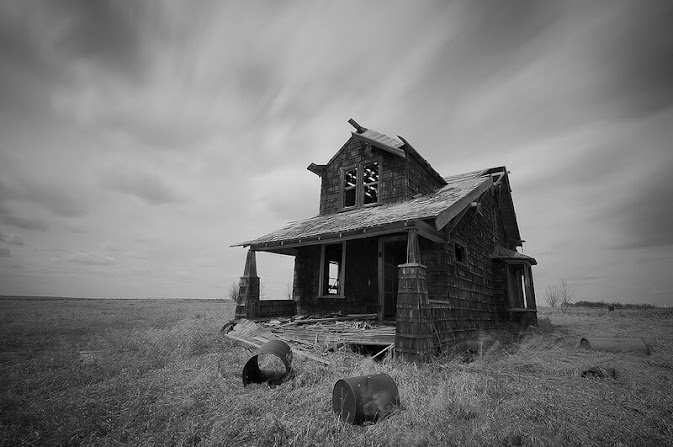Buster Keaton started working in comedy before his fourth birthday. Much like his friend and peer, Charlie Chaplin, comedy was in his blood. He worked with his parents, his father frequently throwing Buster around the stage, and on some occasions even at the audience! Buster's given name was Joseph. "Buster" means a fall, which he was proficient at, even as an infant! There are conflicting reports on who named him Buster, but Buster himself credits Harry Houdini, as seen here.
Buster Keaton immediately captured my imagination, when I first saw his 1924, meta masterpiece, Sherlock Jr. I grew up on Jackie Chan and have watched almost all of Jackie's films, so I already had a very developed appreciation of the artform of stunts and action/comedy set-pieces. Jackie has long credited Buster as being one of his primary influences, with The General being one of his favourite movies. What Jackie continued, Buster started. As with Jackie though, it is not merely the danger that Buster put himself in, but the exceptionally inventive nature of the stunts that he performed, as well as the beauty and poetry that they brought on the big screen, that is most remarkable.
In Sherlock Jr., Buster plays with the conventions of filmmaking, then still a relatively young artform. This is an important thing to remember: Buster was not just a performer, he was a true filmmaker. His films were not just a way to deliver gags, they were true works of art. Buster does not get nearly enough credit for how moving and sweet his films are, especially given his moniker as "The Great Stone Face". Go West, from 1925, sees Buster's character - credited here as "Friendless" - travel across the country in an effort to find employment, and perhaps someone with whom to share his life.
Go West is hilarious, with some exquisite and chaotic set-pieces - including a herd of cows wrecking their way through Los Angeles - but what is equally as notable is how sweet and moving the story is. Brown Eyes befriends Buster and Buster is no longer "Friendless". People don't often think of this kind of story when it comes to Buster Keaton, but they should. While he does not smile or laugh, his face is wonderfully expressive all the same.
While some differ in opinion over Buster's "College", I can honestly say that each of the eleven silent features, I have seen, are of exceptional quality. Each possesses a genius level gift for physical performance, invention and fearlessness. The General will likely go down in history as his greatest work, and it is hard to argue with that. It is truly epic in scale - especially for a comedy - and the stunt work with the trains is awe inspiring. While the setting of the film is ostensibly the American Civil War, Buster's true motivation in The General is, as is the case with most of his films, down to his being in love with a woman, and wanting to prove himself to her. Orson Welles called The General, "the greatest comedy ever made, the greatest civil war movie ever made, and perhaps the greatest film ever made." It isn't hard to see why.
There is such a beauty to Buster's movement, across all of his work. He captured something truly profound about the fragility of life, in his restless attempts to provoke injury or worse. Perhaps Buster's most iconic stunt appears in Steamboat Bill Jr., where, in the middle of a bad storm, the front of a house falls around him.
This has been replicated by many in tribute through the years, though given my love of Jackie Chan, my favourite is his tribute from his excellent action movie, Police Story 2. While you have someone like Tom Cruise, obsessed with doing his own dangerous stunts in the Mission Impossible films, the true genius of Buster Keaton is how these amplify the laughs and how they fit in the story. They are not there simply to emphasize the danger of the scenario. As is also the case with Jackie Chan's Hong Kong work, it is the balletic nature of the stunts, and the elite artistry on display that is the truly compelling thing about them.
Charlie Chaplin advised Buster to stay independent, creatively. Buster, unfortunately, did not listen. He did not transition to talking pictures very successfully, trapped as he was in a studio which had little care or understanding of his rare kind of genius. Buster's silent shorts and features have however aged incredibly well. They remain undiminished in the wonder and awe they inspire in the audience, as well as the laughs that they provoke. His genius, captured on film, some a hundred years+ ago, will live for as long as there are people to watch it.








.gif)

No comments:
Post a Comment